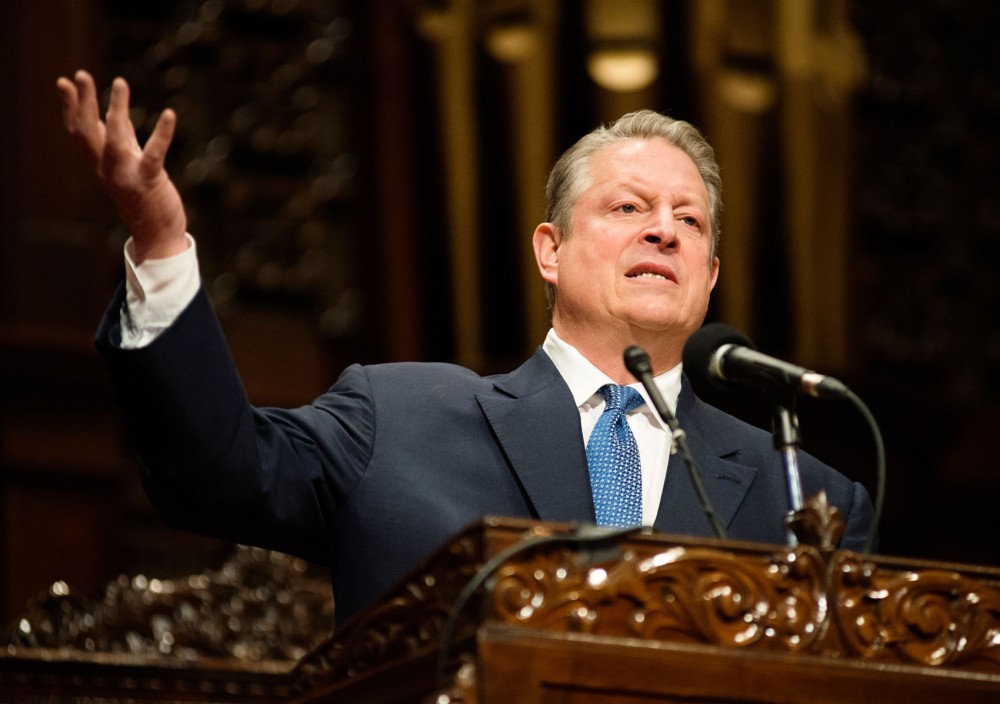Some Democratic-Farmer-Labor party members in the state want to push forward on environmental policy this legislative session.
Sen. John Marty, DFL-Roseville, chairs the Minnesota Senate Environment and Energy Committee and said he expects big changes from his committee this year.
“The biggest urgency facing our state, and frankly our planet, is climate change,” Marty said. “We’re going to need to move more aggressively than we’re acting right now.”
The committee will be very busy in coming weeks, covering a broad spectrum of issues from renewable energy to water conservation to game and hunt issues.
“We’re going to have some really good discussions about how to balance environmental impacts and long-term, sustainable jobs,” said Sen. John Hoffman, DFL-Champlin, vice chair of the committee.
Dr. Harvey Thorleifson, a University of Minnesota earth sciences professor, is one of several professors who have testified on climate change at the Capitol.
“There is a very active discussion taking place in the Legislature,” Thorleifson said.
Jonathan Foley, director of the University’s Institute on the Environment, coordinated the hearing where faculty and students testified in front of several committees.
He said University faculty and students presented information but weren’t there to pursue an agenda.
Marty said he wants to make Minnesota a leader in environmental policy again.
“I’m optimistic with public support, which is strong out there, and with new legislators coming in who are strong environmentalists,” he said.
Foley said several legislators told him they were interested in environmental issues and wanted to hear from researchers and students from the University.
“Our job as educators and scientists is to learn about the world but also share what we learn,” he said.
Graduate student and research associate at the Institute on the Environment Bonnie Keeler thought the testimonies went well.
“Everyone is really committed to finding solutions to problems, and there’s an emphasis on scientifically supported decision-making.”
The state House Energy Policy Committee has already held a few informational hearings on bills focused on wind and solar energy, among other topics.
“We’re going to try and focus on solar as we move into the future,” said Rep. Will Morgan, DFL-Burnsville, vice chair of the committee, “and we think it’s going to be great for renewable energy; it’s great for the environment, but more importantly right now with our economy, it’s going to be great for jobs in Minnesota.”
Morgan hopes to introduce his own solar power bill by next week.
In his State of the State Address earlier this week, Gov. Mark Dayton highlighted the need for change in environmental policy.
“I challenge this Legislature to work again with our state’s visionary clean energy advocates, large energy providers, large energy users, other stakeholders,” Dayton said, “and my administration … to use your past achievements as springboards for Minnesota’s next big leap toward a sustainable energy future.”
Former Vice President Al Gore spoke at the Westminster Town Hall Forum in downtown Minneapolis last week to promote his new book and discuss the need for environmental policy change.
Gore summarized 2012 as the year of climate crisis, pointing to Hurricane Sandy and droughts nationwide.
This heightened public awareness, he said, makes it a good time for lawmakers to take action.
“We’re in trouble [with the climate], and we have the ability to stop the worst of it. But we’re kind of sleepwalking to the edge of a cliff here,” he said.
In his State of the Union Address on Tuesday, President Barack Obama promised to prioritize environmental issues.
“The good news is, we can make meaningful progress on this issue, while driving strong economic growth,” he said. “I urge this Congress to pursue a bipartisan, market-based solution to climate change … but if Congress won’t act soon to protect future generations, I will.”
Marty believes lawmakers can find a bipartisan solution to the climate crisis.
“There are disagreements between parties and within parties, but I think people realize that there is only one planet to live on.”








